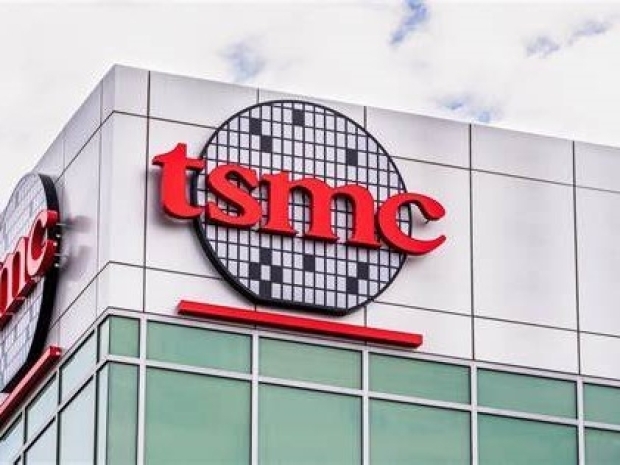Here are TSMC’s second-quarter results versus LSEG consensus estimates:
- Revenue: 673.51 billion New Taiwan dollars (€18.88 billion), vs. NT$657.58 billion expected
- Net income: NT$247.85 billion, vs. NT$238.8 billion LSEG SmartEstimate weighted towards forecasts from analysts who are more consistently accurate
TSMC reported net revenue rose 40.1 per cent from a year ago, while net income increased 36.3 per cent from a year ago. The firm guided second-quarter revenue to be between €17.02- €17.72 billion.
Chairman and CEO C.C. Wei in an earnings call on Thursday said business in the second quarter was supported by strong demand for its industry-leading 3-nanometre and 5-nanometre technologies, though it was offset by continuous smartphone seasonality.
Explosive demand for AI has stretched chip supplies. TSMC is the world’s main producer of advanced chips found in everything from smartphones to AI applications, though rivals such as Samsung and Intel have been trying to challenge its dominance. It counts Apple and Nvidia among its clientele.
“I also try to reach the supply and demand balance, but I cannot. Today, the demand is so high I had to work very hard to meet customer demand,” Wei told analysts.
“The supply continues to be pretty tight, all the way through 2025,” Wei warned, adding that the firm hopes the tight supply can ease in 2026.
The chip giant currently produces 3-nanometre chips and plans to commence mass production of 2-nanometre chips in 2025. Typically, a smaller nanometre size yields more powerful and efficient chips.
Development of 2-nanometre technology is “progressing well” and is on track for volume production in 2025, said TSMC.
For the third quarter, the business is expected to be supported by strong smartphone and AI-related demand, said Wei, adding that they continue to expect 2024 to be “a strong growth year for TSMC.”
TSMC projects third-quarter revenue between €19.98-€20.69 billion. This compares to €15.42 billion in revenue posted in the same period a year ago.
For its capital budget this year, the firm is narrowing the range to between €26.88 billion and €28.7 billion, versus a previous forecast of €25.08 billion to €28.7 billion. Out of this budget, 70 to 80 per cent will go towards advanced technologies.
“We are working very, very hard to get enough capacity to support customers,” Wei said.
The firm further added that it is not ruling out the possibility of converting more “N5” technology into “N3” technology to meet the strong demand for 3-nanometre chips.
TSMC shares closed 2.43 per cent lower on Thursday, as Asian chip stocks tumbled on the back of a U.S. tech sell-off sparked by reports that Washington is considering tighter export curbs.
Surging demand for advanced chips used in AI applications has boosted TSMC’s Taiwan-listed shares by nearly 70 per cent so far this year.

